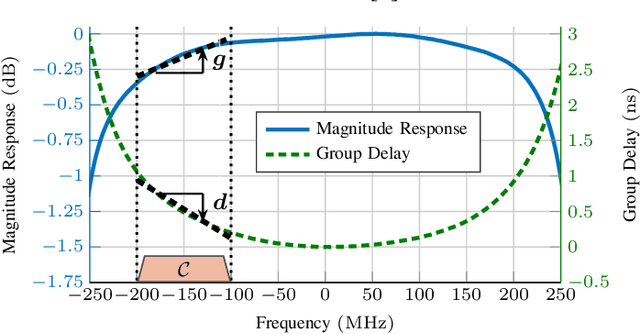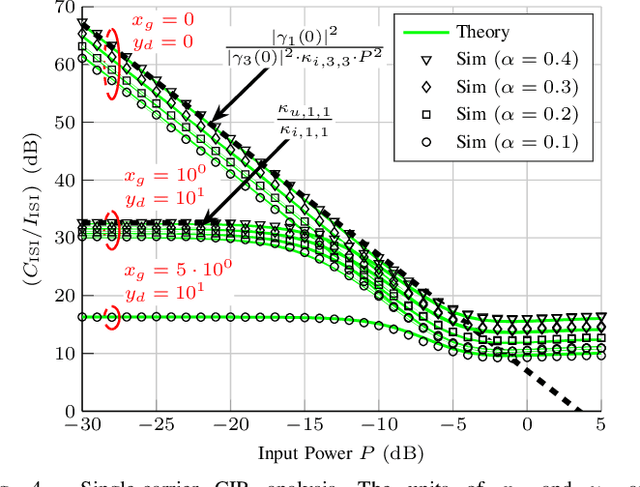Thomas Delamotte
Efficient Precoding for LEO Satellites: A Low-Complexity Matrix Inversion Method via Woodbury Matrix Identity and arSVD
Dec 18, 2025Abstract:The increasing deployment of massive active antenna arrays in low Earth orbit (LEO) satellites necessitates computationally efficient and adaptive precoding techniques to mitigate dynamic channel variations and enhance spectral efficiency. Regularized zero-forcing (RZF) precoding is widely used in multi-user MIMO systems; however, its real-time implementation is limited by the computationally intensive inversion of the Gram matrix. In this work, we develop a low-complexity framework that integrates the Woodbury (WB) formula with adaptive randomized singular value decomposition (arSVD) to efficiently update the Gram matrix inverse as the satellite moves along its orbit. By leveraging low-rank perturbations, the WB formula reduces inversion complexity, while arSVD dynamically extracts dominant singular components, further enhancing computational efficiency. Monte Carlo simulations demonstrate that the proposed method achieves computational savings of up to 61\% compared to conventional RZF precoding with full matrix inversion, while incurring only a modest degradation in sum-rate performance. These results demonstrate that WB-arSVD offers a scalable and efficient solution for next-generation satellite communications, facilitating real-time deployment in power-constrained environments.
Shaping Rewards, Shaping Routes: On Multi-Agent Deep Q-Networks for Routing in Satellite Constellation Networks
Aug 04, 2024



Abstract:Effective routing in satellite mega-constellations has become crucial to facilitate the handling of increasing traffic loads, more complex network architectures, as well as the integration into 6G networks. To enhance adaptability as well as robustness to unpredictable traffic demands, and to solve dynamic routing environments efficiently, machine learning-based solutions are being considered. For network control problems, such as optimizing packet forwarding decisions according to Quality of Service requirements and maintaining network stability, deep reinforcement learning techniques have demonstrated promising results. For this reason, we investigate the viability of multi-agent deep Q-networks for routing in satellite constellation networks. We focus specifically on reward shaping and quantifying training convergence for joint optimization of latency and load balancing in static and dynamic scenarios. To address identified drawbacks, we propose a novel hybrid solution based on centralized learning and decentralized control.
Distortions Characterization for Dynamic Carrier Allocation in Ultra High-Throughput Satellites
May 25, 2021



Abstract:A novel analytical formula for the characterization of linear and nonlinear distortions in future ultra high-throughput communication payloads is proposed in this work. In this context, the carrier-to-interference ratio related to single-carrier and multicarrier signals is derived. Through the analysis of its behavior valuable insights are created, especially regarding the interaction between linear and nonlinear intersymbol interference. Furthermore, the principle of dynamic carrier allocation optimization is highlighted in a realistic scenario. Within the presented framework, it is proven that a significant gain can be achieved even with a limited number of carriers. Finally, a complexity and accuracy analysis emphasizes the practicality of the proposed approach.
 Add to Chrome
Add to Chrome Add to Firefox
Add to Firefox Add to Edge
Add to Edge